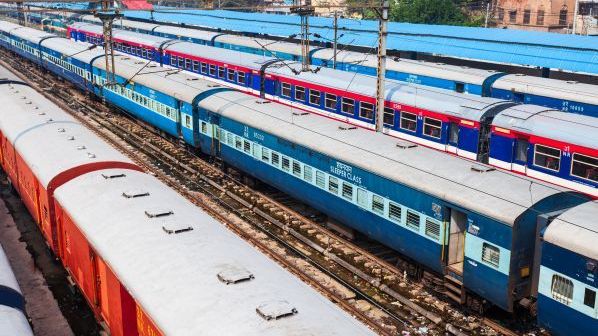TWO years after India's cabinet sanctioned the Rs 190bn ($US 2.6bn) infrastructure upgrade plan to raise train speeds on the Delhi - Mumbai and Delhi - Kolkata routes to 160km/h, Indian Railways (IR) has decided to float bids next month to execute necessary civil and signalling works on both routes.
Indian Public Sector Undertakings (PSUs) - with or without collaboration from private or foreign infrastructure companies - will be eligible to participate, say ministry sources.
Plans to upgrade the two lines were conceived in 2007-08. Additional funds for track decongestion have been allocated in recent years, but upgrade work on 30 of the 58 lines identified as supercritical have remained pending, while none of the 60 routes identified as critical have been completed.
For the current financial year, IR has set stiff targets aimed at freeing up the clogged rail network, with plans to achieve 2400km of new line, gauge conversion and track doubling projects. In addition, electrification of 6000km lines is also envisaged.
IR has identified seven high-density routes and 11 highly-utilised routes which together carry approximately 80% of the traffic on a route length of 34,214km. By 2051, the majority of these routes will exceed capacity by one and a half times, according to the draft 2030 National Rail Plan.
IR's renewed activities to decongest the 1384km Delhi - Mumbai and the 1434km Delhi - Kolkata () main lines are seen as a precursor to plans to lease out these and other routes for private train operations by 2022. IR has already floated tenders to permit 150 private trains on 100 identified routes.
IR's 160km/h plan involves construction of 2x25kV overhead electrification, elimination of level crossings, installing high-speed turnouts, and providing advanced warning systems on locomotives.
IR's technological upgrade plan received a boost earlier this month when the Union Cabinet approved allocation of 5MHz spectrum in the 700MHz band. With this development, IR's long-awaited plan to install its indigenously developed Train Collision Avoidance System (T-CAS) Automatic Train Protection system can now proceed. The spectrum will also enable Internet of Things-based remote monitoring of coaches, freight wagons and locomotives and live video feed from CCTV cameras in trains. IR is also working on plans to provide Long Term Evolution (LTE) based mobile train radio communication on the network.

